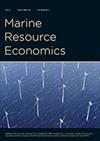In Pursuit of the Three Pillars of Sustainability in Fisheries: A Faroese Case Study
IF 1.7
3区 经济学
Q2 ECONOMICS
引用次数: 7
Abstract
The prevailing perspective in fisheries has been that the three pillars of sustainability—ecology, economics, and social—are incompatible due to inherent tradeoffs. That assumption is now being questioned in the literature. The primary objective of this article is to evaluate the triple-bottom line performance of key fisheries in the Faroe Islands and determine if outcomes vary between management systems. Fisheries managed with limited-access rights demonstrated systematic overfishing, generated little to no resource rent, had poor profits, remuneration was at times very poor, and employment declined. The fleets managed with harvest rights performed better overall. They were more sustainable, more profitable, generated large resource rents, remuneration was large, and employment increased. We conclude that the three pillars of sustainability are compatible and mutually reinforcing and that fleets with harvest rights are more likely to achieve good triple-bottom line results.追求渔业可持续发展的三大支柱:以法罗群岛为例
渔业界普遍认为,由于固有的权衡,可持续性的三大支柱——生态、经济和社会——是不相容的。这一假设现在在文献中受到质疑。本文的主要目的是评估法罗群岛关键渔业的三重底线绩效,并确定不同管理系统的结果是否不同。利用有限的获取权管理的渔业显示出系统性的过度捕捞,几乎没有产生资源租金,利润微薄,报酬有时非常低,就业率下降。使用收割权管理的船队总体表现更好。它们更具可持续性,利润更高,产生了大量的资源租金,薪酬也很高,就业也增加了。我们得出的结论是,可持续性的三大支柱是兼容和相辅相成的,拥有捕捞权的船队更有可能取得良好的三重底线成果。
本文章由计算机程序翻译,如有差异,请以英文原文为准。
求助全文
约1分钟内获得全文
求助全文
来源期刊

Marine Resource Economics
农林科学-渔业
CiteScore
4.30
自引率
10.30%
发文量
25
审稿时长
>12 weeks
期刊介绍:
Marine Resource Economics (MRE) publishes creative and scholarly economic analyses of a range of issues related to natural resource use in the global marine environment. The scope of the journal includes conceptual and empirical investigations aimed at addressing real-world oceans and coastal policy problems. Examples include studies of fisheries, aquaculture, seafood marketing and trade, marine biodiversity, marine and coastal recreation, marine pollution, offshore oil and gas, seabed mining, renewable ocean energy sources, marine transportation, coastal land use and climate adaptation, and management of estuaries and watersheds.
 求助内容:
求助内容: 应助结果提醒方式:
应助结果提醒方式:


